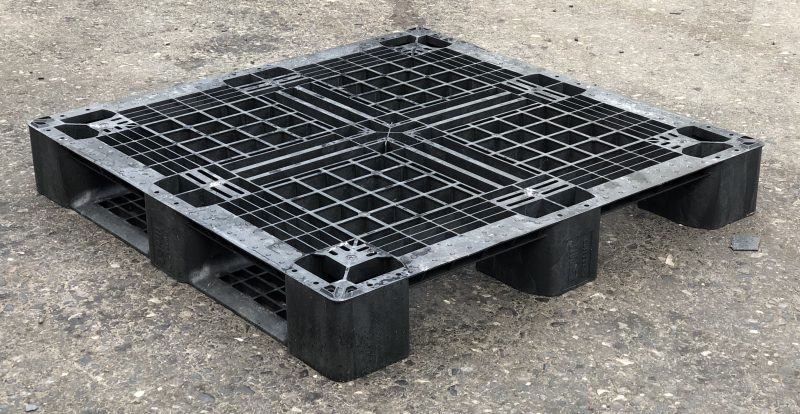8 Common Mistakes That Can Lead To Plastic Pallet Damage
23 Jul 2018
Plastic pallet damage is bad news for your business. It means you will need to invest in new pallets, and if the products being stored on the pallets are damaged too, you could incur additional expenses. And customers will not be very happy at receiving damaged goods, so your reputation could well be on the line. In order to ensure pallets do not get damaged, whether at the loading stage or during transit, here are eight common mistakes to avoid.

1. Turning Too Early
It is important to ensure the forklift forks are completely clear of the pallet before turning it. If you turn too early, pallet damage is a real possibility.
2. Not Caring for Pallets
Plastic pallet damage is inevitable if the pallets are not looked after properly, so make sure they are correctly stored out of the way so they do not come to any harm. Accidents can occur if pallets are lying around. This risks damaging the pallet; worse still, it could result in injuries to employees. It is also imperative to lift pallets carefully so they do not get damaged, and never slide them or throw them across the ground.
3. When Pallets Are Too Low
If plastic pallets are carried too low to the ground, they could catch on uneven surfaces, ramps or other bumps, which could result in damage. It is vital that the plastic pallet is sufficiently raised off the ground when carrying it or moving it about so that it does not come into contact with the surface.
4. Forks Incorrectly Positioned
To prevent damage to your plastic pallet, the forks need to be in the appropriate position. This means they need to be kept horizontal when loading or off-loading pallets. The load should also not be too far out.
5. Wrong Fork Length
If the distance between the forks on the forklift is not correct, this can affect the stability of the pallet and result in damage. Items could even fall off. Generally, fork distance should be set at around 60% of the width of the plastic pallet.
6. Incorrect Racking
It is crucial that the correct racking load is used when transporting pallets to ensure an even spread. If this does not adhere to guidelines, plastic pallet damage could ensue.
7. Errors with Static Load
Sometimes stacking pallets offers convenience when transporting goods, but it is important to correctly assess the static load so that the pallets and their contents do not get ruined. Static load refers to the maximum load of a plastic pallet when located on an even surface. If you intend to stack pallets, the total weight should determine the load on the lowest pallet.
8. When Dynamic Load Is Too High
Plastic pallet damage is likely if you do not correctly assess the dynamic load of your pallets. This relates to the maximum pallet load during transit by a forklift or truck in an evenly spread load on the pallet.
